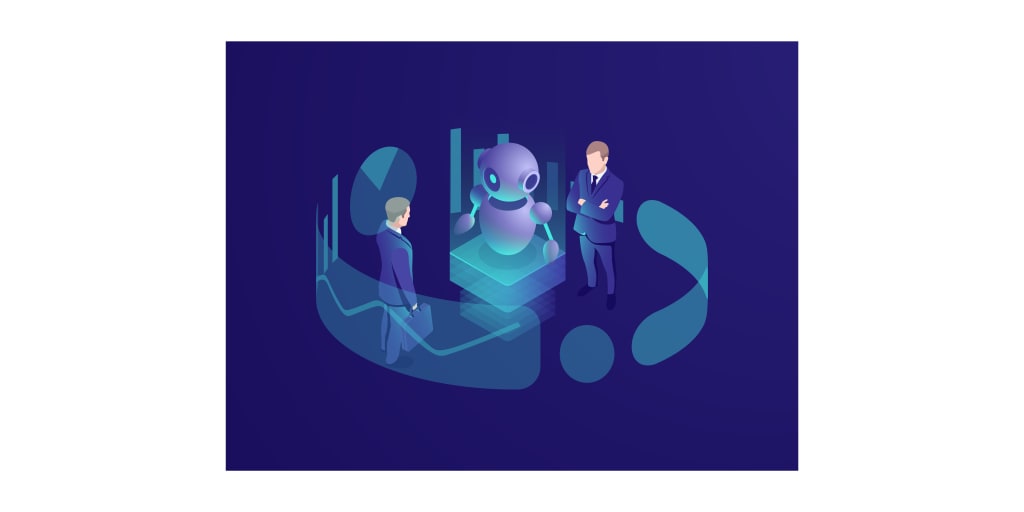Transforming HR Operations with Artificial Intelligence
This blog examines how artificial intelligence (AI) is changing talent management and HR operations. It also discusses how AI is reinventing HR. It looks at both the benefits and drawbacks of employing AI in HR and emphasizes the need to find a balance between using AI capabilities and maintaining human knowledge and judgment.

Artificial intelligence, or AI, is quickly changing a variety of facets of contemporary life, including healthcare, banking, and education. However, no sector may stand to gain more from AI than human resources (HR). HR professionals are increasingly using AI-powered tools and technology to help them recruit, screen, hire, and manage people more successfully as the global race for talent continues to heat up. This article will examine the numerous ways that AI is reshaping the HR landscape and what it implies for companies trying to remain on the cutting edge.
Attracting Top Talent with AI
Finding and enticing the ideal individuals for available roles is one of the major difficulties confronting HR executives today. It may be challenging to sift through resumes and applications to find the best prospects when there are so many job seekers to select from. AI has a lot to offer in this area. AI can swiftly determine which individuals are best qualified for a position based on characteristics like experience, skills, education, and personality traits by utilizing machine learning algorithms to scan vast databases of job descriptions and candidate profiles. This not only speeds up the recruiting process and lowers the possibility of prejudice, but it also ensures that only the most qualified applicants are found and taken into consideration.
Screening and Assessing Candidates with AI
The next stage is to screen and evaluate the applicants to ascertain their fit for the position once a pool of candidates has been discovered. Another area where AI may be quite useful is this one. AI-powered systems may examine applicant resumes and cover letters to identify crucial abilities and experiences and spot possible red flags like typos, grammatical problems, and inconsistencies by employing natural language processing (NLP) and sentiment analysis. During pre-employment simulations and tests, AI may, among other things, evaluate a candidate's cognitive abilities, problem-solving prowess, and emotional intelligence. This results in better hiring by enabling HR professionals to make more educated choices about which prospects to pursue.
Managing and developing employees with AI
Naturally, HR's work does not cease when a candidate is hired. Additionally, managing and developing workers during the course of their employment with the organization is a crucial responsibility for HR experts. AI may assist once again. AI can forecast which workers are most likely to quit the organization, which employees are most likely to succeed in a particular function, and which employees may require further training or development by identifying patterns and trends in employee data. As a result, HR personnel can proactively handle problems and make data-driven choices that will maximize employee productivity and retention.
Giving staff individualized learning and development opportunities is another area where AI may be quite useful. AI-powered systems may design personalized learning routes for each employee based on their unique learning preferences, objectives, and styles by applying adaptive learning algorithms. Offering worthwhile possibilities for growth and development not only helps workers gain new skills and information more quickly and efficiently but it also helps businesses retain top talent.
The future of HR is AI
AI's function in HR will only grow in significance as the technology develops and becomes more sophisticated. Businesses may remain ahead of the curve and get a competitive advantage in the global employment market by using AI to recruit, screen, hire, and manage people. But it's vital to keep in mind that AI is not a panacea. It is still the responsibility of HR professionals to make wise judgments and foster an environment that attracts and keeps great talent. However, by integrating AI into their workflows and procedures, HR managers may improve efficiency, lessen prejudice, and make fact-based choices that are advantageous to both workers and the company as a whole.
Challenges and Considerations with AI in HR
Of course, there are possible issues and things to think about with any new technology. The possibility of bias is one of the greatest worries with regard to AI in HR. Biased data leads to biased algorithms since AI algorithms are only as objective as the data they are trained on. If the algorithm is educated on data that reflects past prejudices or preconceptions, for example, this might result in unintended discrimination throughout the recruiting process. It's crucial for HR professionals to carefully assess the data they use to train AI algorithms and to frequently monitor and audit these algorithms to make sure they're generating fair and impartial findings in order to reduce this risk.
Potential job displacement is another issue with AI in HR. As AI develops, some HR tasks currently performed by humans may become automated, which could lead to job losses in the industry. It's also likely that AI may provide new employment possibilities, such as those centered on managing and enhancing AI-powered HR systems and technology. HR professionals need to stay current on the latest developments in AI and make proactive adjustments to their skill sets and job responsibilities if they want to be competitive in the changing workplace.
Conclusion
In conclusion, AI is fast changing the HR sector, and its effects will only grow stronger over the next few years. Businesses may get a competitive advantage in the global talent market and streamline their HR processes by using AI to recruit, screen, hire, and manage people. But it's crucial to keep in mind that AI cannot take the place of human knowledge and discretion. In order to continue making wise judgments and fostering an environment that attracts and keeps great people, HR professionals must continue to apply their skills and expertise. HR workers may open up new opportunities and bring about significant change in their businesses by collaborating with AI.





Comments
There are no comments for this story
Be the first to respond and start the conversation.